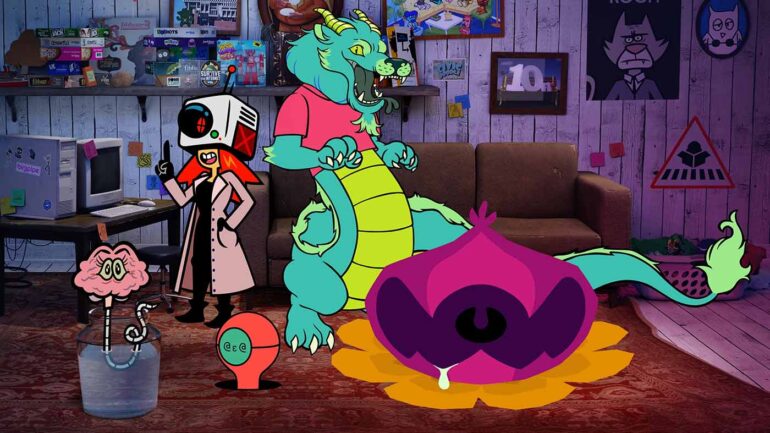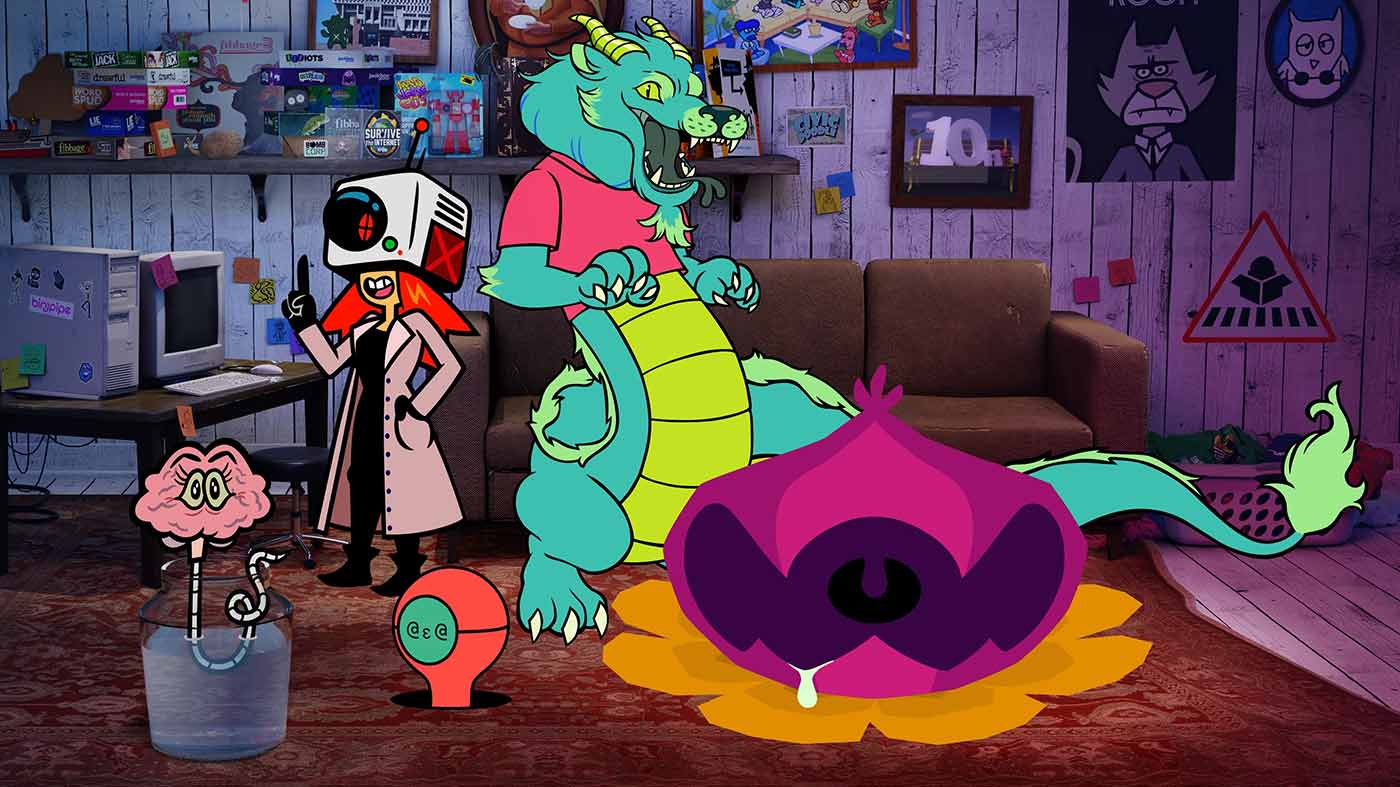The Jackbox games have long been a consistent source of social fun since the very first home console versions of You Don’t Know Jack appeared and through the boom that came about with is recurring series of “Party Packs” featuring unique party games designed both for couch play and streaming. Now, in its tenth iteration, there’s no signs of the Jackbox Party Pack train slowing down as the team has delivered yet another excellent collection of games – probably one of its most consistent to date.
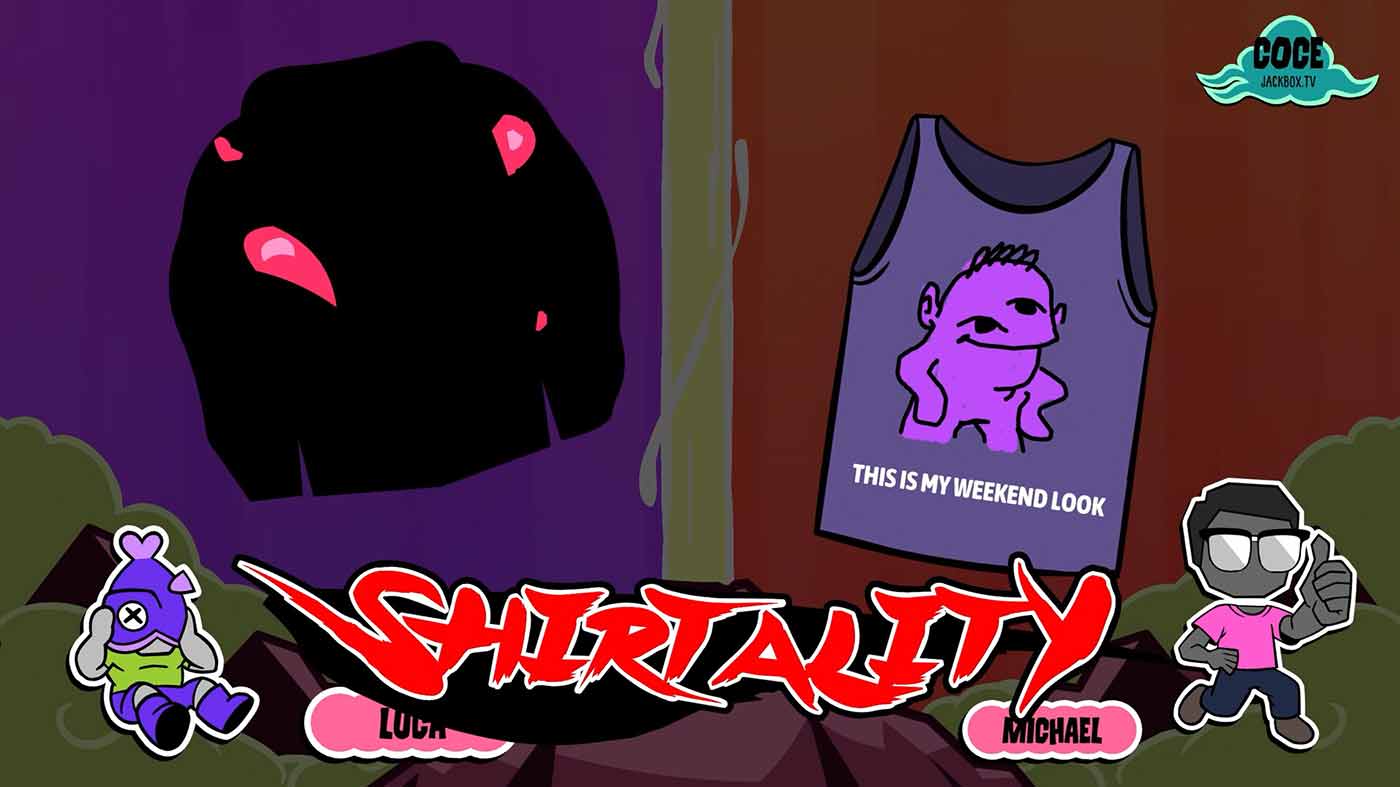
Like with every Jackbox release, Party Pack 10 definitely has clear winners and comparatively one-and-done curiosities among its five games, and the pride pick of the bunch this time around is Tee K.O. 2. While it’s a bit of a cop-out as a revisit of a game from The Jackbox Party Pack 3, it’s been long enough that it’ll likely be fresh to most players. The gist is simple with each player anonymously submitting a handful of drawings and slogans which are then randomly distributed to the other players, who must choose which ones to put together into a final design. The designs are then pitted against each other until a winner is declared.
Improvements in the Tee K.O. sequel come via much more robust drawing tools and a better voting system, which is now bracketed. The second round is always a lot of fun with the previously-unused designs redistributed along with the ability to submit fresh designs or edit other players’ drawings. The final round sees two designs face off in a fighting game-esque battle where players repeatedly tap on the shirt (or tank, or hoodie!) they want to see win. And, like before, if you’re particularly attached to your design you can order an actual, IRL print of it. It might not be the most innovative game in the bunch, but in the current climate of crappy AI art and “need this on a shirt” bot bait it’s nice to just sit around with friends and proudly churn out the worst clothing designs you’ve ever seen.
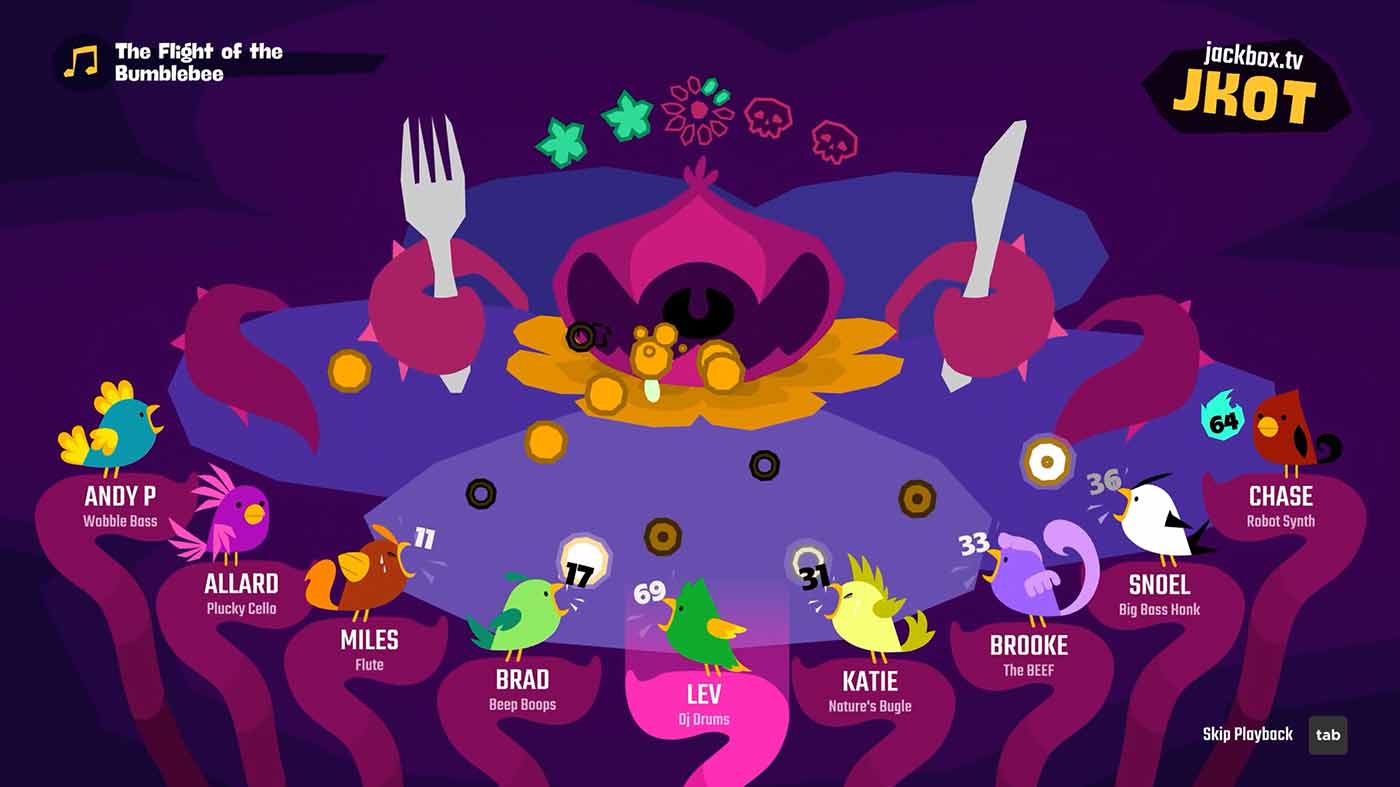
I was initially very apprehensive of Dodo Re Mi, a music game that plays like a “proper” video game with real-time prompts for players to follow along with, which is something that Jackbox has never really offered successfully and instead calls to mind those phone-based PlayLink games that PlayStation tried to push during the last console generation. Thankfully, this one’s actually a lot of fun and I can see it being a crowd favourite just for the Guitar Hero-esque vibes.
Dodo Re Mi is pretty much what you’d expect with players picking a song to collectively tap notes along to like most other rhythm games and competing for scores. The fun in this comes from the selection of wacky instruments on offer from traditional instruments to things like “Constant Screaming” or “Cannon” which makes playing alongside someone else IRL a potentially very distracting experience. You’ll also get to listen to the complete performance at the end of each track featuring everyone and their instruments, which is often profusely awful to listen to in the best way. The game does a good job of making sure everyone’s audio and inputs are syncing up nicely, which is great as a rhythm game in this format could have easily been a disaster.
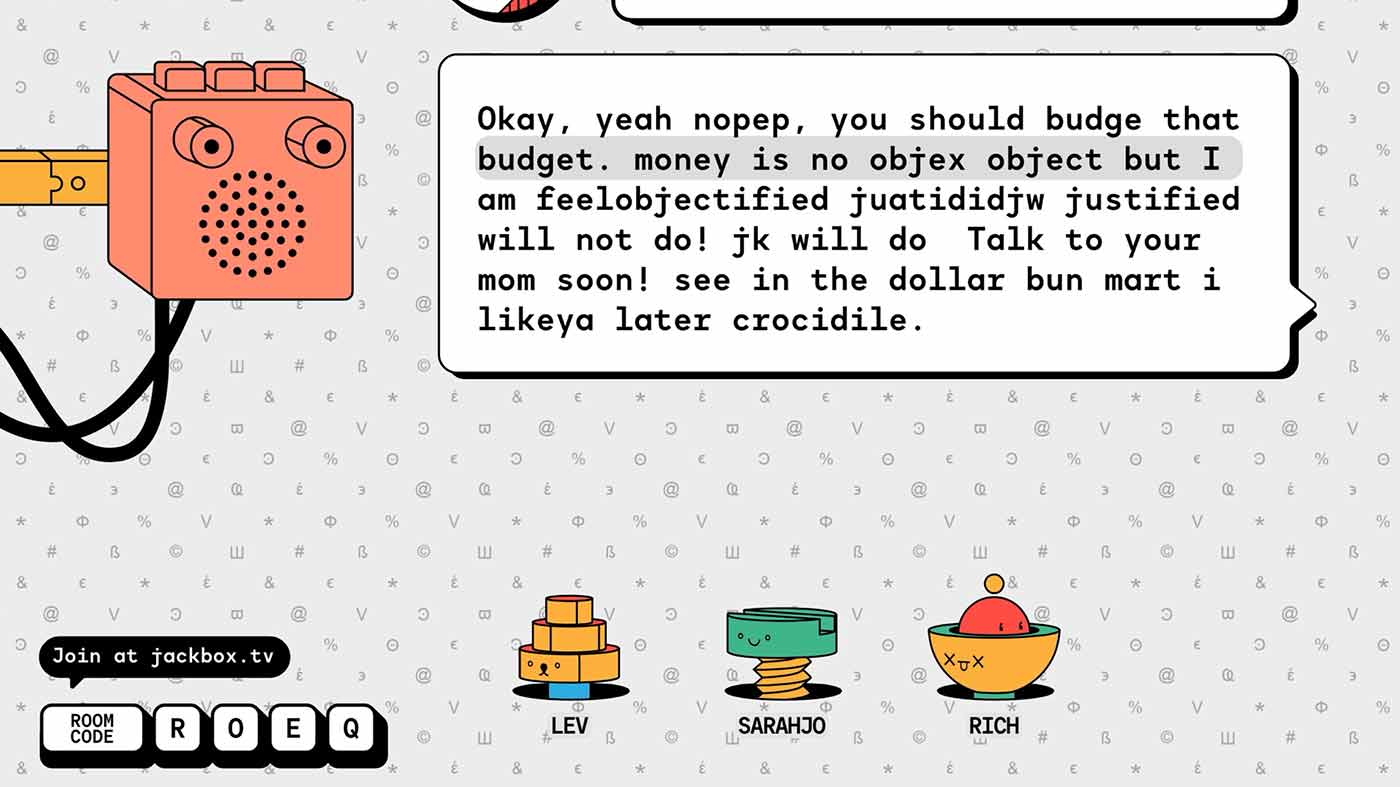
FixyText is probably my personal favourite among the bunch, not least because it somewhat recalls my obsession with Mad Verse City in Party Pack 5. In this one, players are split into teams and asked to collaborate in responding to a text message provided by the game – only you’ve got a limited time, limited characters and no backspace capabilities when crafting your reply message. Once you’re done, the game will then read out your text message in a classically robotic text-to-speech voice, which is usually deeply hilarious in a very stupid way.
Players score points in FixyText by having the other team vote on their favourite words that appeared in the text reply, with points going to whoever wrote those words. You’re even recognised for the assist if multiple players contributed to a particular word (or garbled jumble of typos). If you’ve ever engaged in a bit of light-hearted buffoonery in a work document being collaborated on in real time, you’ll understand why this game offers up some incredible laughs. Although it’s threadbare in terms of actual “game,” the potential for chaos – especially playing in large, online groups – coupled with some genuinely excellent presentation, makes this one a stand-out in the group.

No Jackbox Party Pack would be complete without a trivia game of some kind, and this time around that’s Timejinx. This one’s all about guessing the year that various things took place, be it major historical events, movie premieres or world-changing innovations. The edge is taken off of proceedings slightly by asking contestants to get as close to the actual answer as possible rather than expecting everyone to be able to rattle off exact dates, and the rounds start off with only a 15-year possible range before increasing as the game goes on. The game then takes whatever the gap was in your guesses versus the actual answer, and adds them together to produce your score, meaning the lower your overall points are the better.
There are some neat wrinkles in Timejinx, with unique special rounds and some welcome ways for lagging players to catch up, but overall it’s really just regular trivia dressed up in a “time travel” theme that doesn’t really offer much to match that concept. The saving grace in this game is the way it offers plenty of opportunities to reduce their score from the main rounds which keeps things interesting right up to the end, but otherwise it’s probably the most forgettable game here.
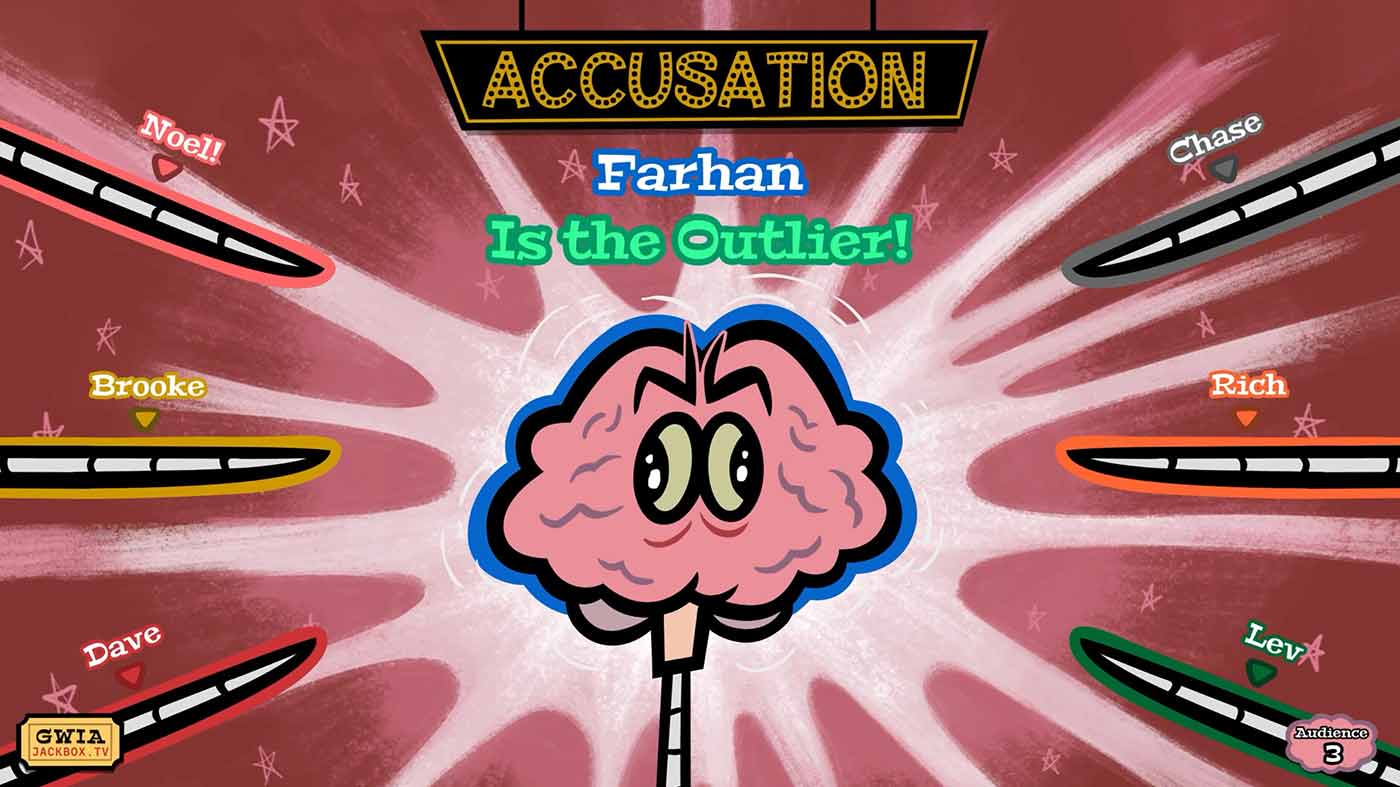
The last inclusion, Hypnotorious, is a kind of social deduction/hidden identity game where players are assigned a character to play that they must keep secret from everyone else. Each players’ character fits into one of three categories, but nobody is told what the categories are and so must try and figure out, based on how everyone else is playing, which other players they share a category with. Meanwhile, one unlucky player will find themselves The Outlier, the only person assigned to their category, and points are scored by figuring out who The Outlier is as not even they’re told this.
If that all sounds confusing, it’s not just you (or my terrible explanation), as it took my group a few rounds to actually figure out how to play effectively. If anything, it all works best when you forget about trying to “play the game” and just do your best to embody your assigned character and then go with the flow. Once you figure that out, and provided the people you’re playing with aren’t afraid to do a bit of acting it’s actually a lot of fun and a good introduction to the kind of skill set needed to play games like Werewolf or Secret Hitler.


